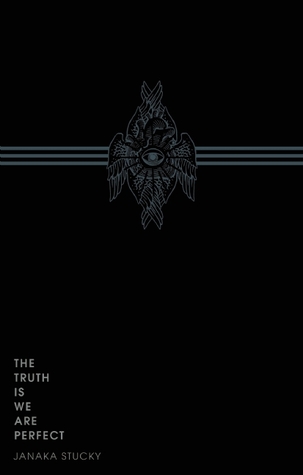
by Janaka Stucky
This collection of poetry is infused with spiritual intention, and it’s easily one of the best poetry books I’ve read during quarantine. I’ve read and re-read it several times, following my first Writing and Ritual workshop with Janaka Stucky and Pam Grossman.
This is a tremendous collection for poets, those concerned with matters of the spirit and soul, and where those two identities converge.
If you appreciate the work of David Lynch, it is more likely that you will appreciate this collection, because these poems are in pursuit of “bigger fish” down past the surface of what you can see. I think that readers who are curious about, or practitioners of magic, the occult, meditation (particularly transcendental meditation) are the audience who will be best suited to these poems.
There is a link on the interior page to hear Janaka read the work; I cannot recommend this highly enough because the reading of the work makes it dance off the page and into life. Likewise, I recommend spending time with the poem “This Is the Hour When You Learn to Love Without” for meditation. The poem is deceptively simple, and repeating its lines deepens the meaning.
The poems in this collection explore both the sacred and the profane, and finds beauty and meaning in both. There is some dark material to be found here, but there is an equal amount of lush, sensual language that balances. Much like the world it exists within and the people who inhabit it: there is savagery, desolation, beauty, and enlightenment.
These poems don’t hand things to you on a silver platter. They make you work for meaning. For some readers, this will make the book more rewarding. Not every reader will embrace this, though, because it requires you to be an active participant in your experience. I recommend you know which kind of reader you are BEFORE investing in the book.
In this way, I found this collection of poetry functioned much like a mirror, reflecting back my own soul. If I didn’t like what I saw, I was afforded the opportunity to dive deeper, and change it. Many people cannot sit with poetry that looks despair in the face and asks you to realize that despair, like joy, is part of our own humanity and though painful, it is a necessary part of growth.
I think that this collection of poetry is not going to be for everyone– and that is okay, too. Some readers are not ready to see what it reflects back. Some are.
If you’re looking for poems that change with each reading because you yourself have changed each time you pick up the book, this collection is probably for you.
This book came into my life exactly when I needed it, and for that, I am grateful.
The truth is — whether or not we are ready to embrace our shadow as well as our light — we ARE perfect.